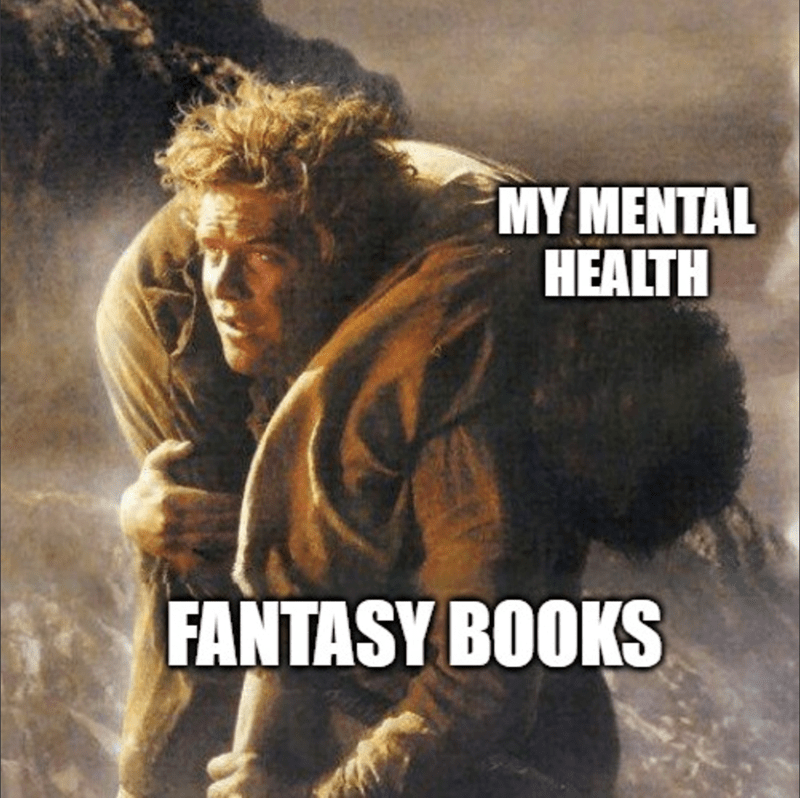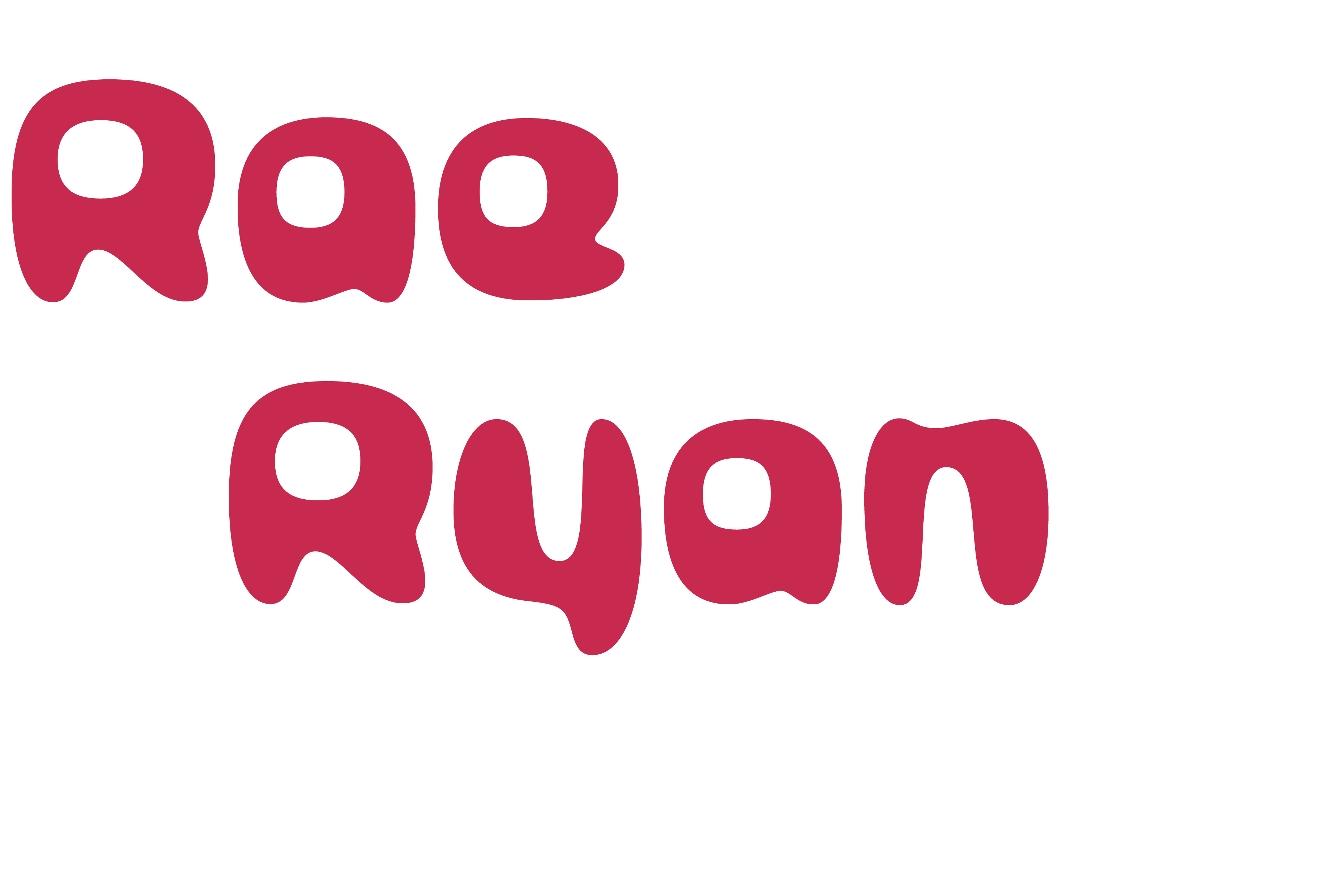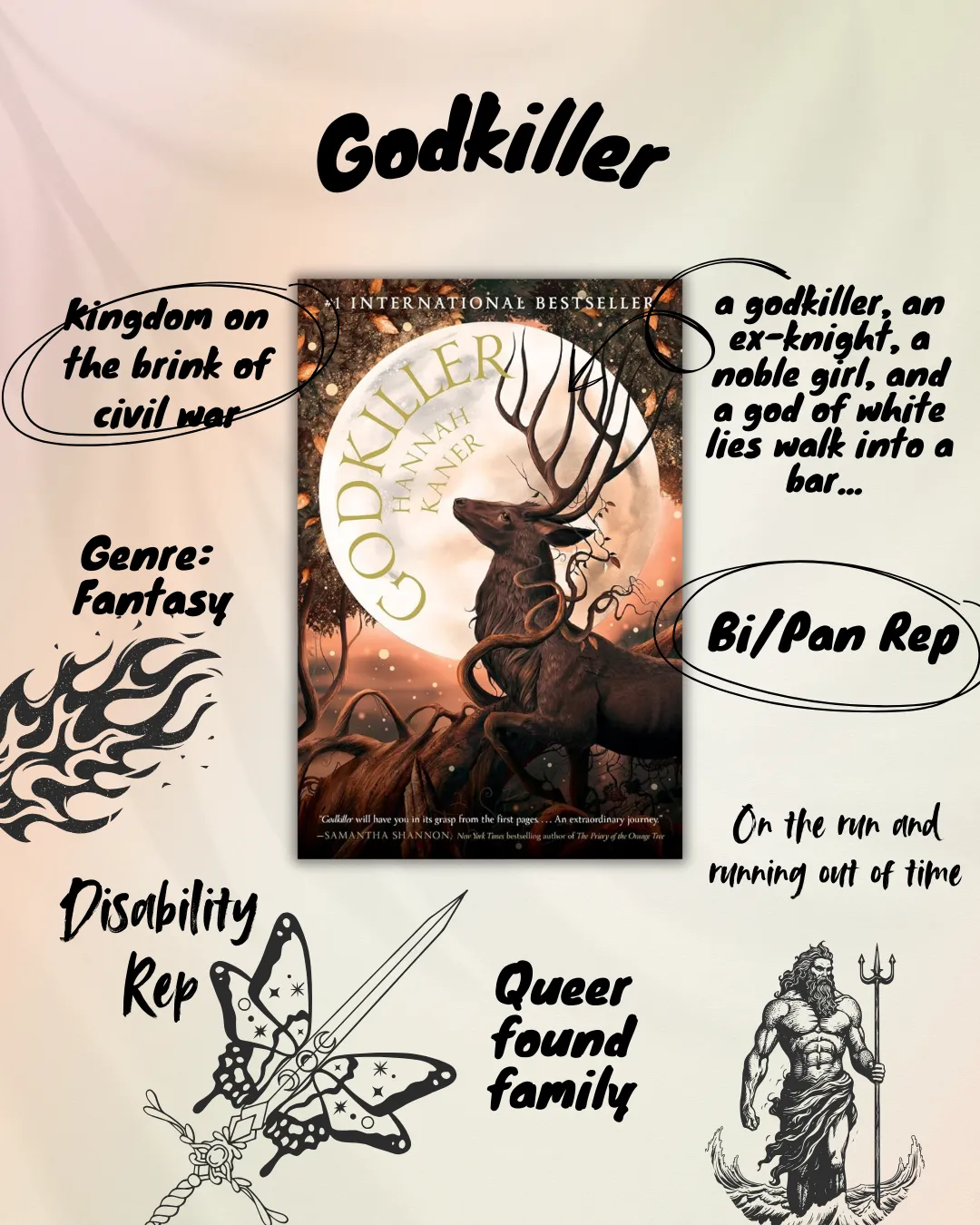I wasn't sure about Godkiller by Hannah Kaner at first. My knee-jerk reaction to effusive praise for a book makes me nervous (I'm thinking Maas and Twilight), but to each their own. Godkiller was making the rounds on BookTok, so I put a hold on the audiobook at the library. It took me a minute to get into the book, but once I did, I couldn't put it down.

We follow four main characters. The first is Kissen. We learn early on that she lost her whole family and her leg to a fire god, and now she kills gods for a living. She's gruff, rough and tumble, and likes to flirt with the ladies. Kissen runs into a young noble girl, Anara, who asks for Kissen's help to separate her from a small god of white lies named Skedi. Gods are a lot like people in this world. There are old gods, then there are the newer wild gods and modern gods (like the god of broken sandals 😍). Years before, King Arren fought a devastating battle against the wild gods that took over the city of Blenraden, and the god of war wounded him in the battle. At his side was his knight and friend Elogast, now a disillusioned baker, whom King Arren sends back to the forbidden city to save his life. All four of our characters are thrown together on the road to Blenraden.
There were so many things I enjoyed about this book. Kanner sprinkled queerness throughout the story with no societal prejudice–thank the gods for that. I liked that Skedi had his own story arc and trials to overcome instead of being a plot device like so many non-human characters. His desire for independence and power clashes with his love for Anara.
I'm often on the fence with children as main characters, but Anara is old enough not to be annoying. She's also a young girl living through extreme circumstances, which gives her believable maturity for the situation. Her past remains shrouded in mystery, and so too does her inexplicable bond with Skedi. The unanswered questions at the heart of the mystery were like a cow prod keeping me reading to find the answer.
In my opinion, the depiction of Kissen's disability was well-executed. Her disability was a fact of life, not trauma porn. Her prosthetic leg didn't 'fix' her and came with its own problems. Kissen has a shit-kicking, back-talking personality that's backed up by a big sword and the skills to wield it. It would be easy to see her as a typical male character superimposed on a female character, but she isn't selfish, self-destructive, or cruel. When she agrees to help Anara, she never breaks her promise not just because it was a promise, but because she sees herself in Anara: an orphaned girl with no one in the world.
Elogast is racked with guilt over the war and has PTSD. Characters who carry guilt and resulting depression are often the least loved characters, and I think that's because we want people like this to stop being sad sacks and to pull themselves together. Sound familiar? As a person with depression, I like when these characters are well represented. Sometimes I dislike them because I dislike the same tendencies in myself that I perceive as a weakness. They are the parts of myself I wish I could erase. Elogast is all of these things, but he has strong convictions and empathy for others. He can also kick some serious ass.

I don't normally read past the first book in a series because I have the attention span of a puppy. When I finished Godkiller I put Sunbringer on immediate hold. I listened to the audio for the first one, and I'll carry that through the series. If you like interesting fantasy books that approach magic and diverse characters from a slightly different angle, then this one's for you.
/rae/


